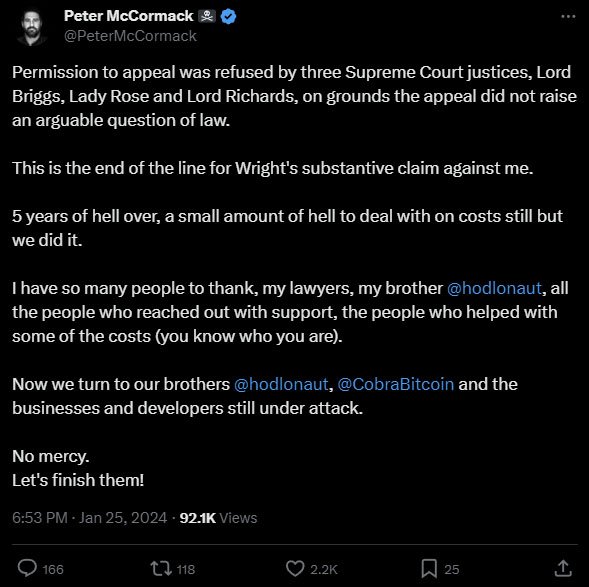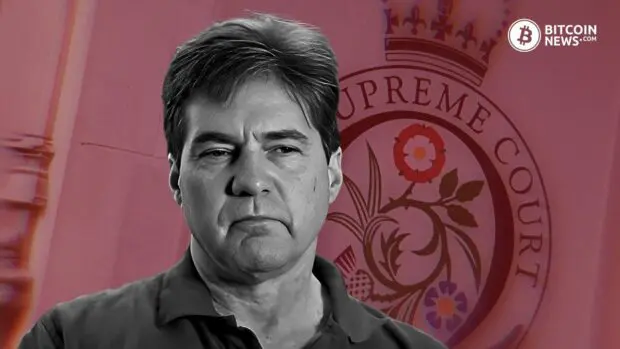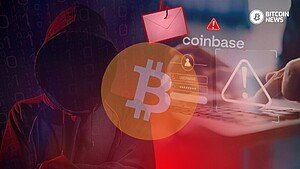In a recent turn of events, the self-proclaimed Bitcoin inventor, Craig Wright, faced another setback as the UK Supreme Court rejected his appeal in the libel case against podcaster Peter McCormack. The court stated that Wright did not raise an “arguable question of the law”, stating:
“Permission to appeal is refused on the ground that the appeal does not raise an arguable question of law.”
Peter McCormack announced the news on his X account.
Supreme Court Refusal: One Pound Nominal Damages Stand
The UK Supreme Court’s denial of Craig Wright’s appeal solidifies a previous ruling that he was entitled to just £1 in compensation for a libel claim against Peter McCormack.
Rupert Cowper-Coles, representing McCormack, confirmed the Supreme Court’s decision and expressed satisfaction with the judgment. Wright’s attempt to appeal twice had been unsuccessful, maintaining the nominal damages award.
Cowper-Coles stated:
“We actually only just found out about it but it was at the end of end of last year, [the] Supreme Court refused permission for Craig Wright’s appeal […] So they’re very pleased that judgment stands – [the] one pound nominal damages award, which Craig has tried to appeal twice unsuccessfully.”
Peter McCormack Prevails in Long-Running Legal Battle
Peter McCormack expressed relief that the legal saga is over, stating:
“Permission to appeal was refused by three Supreme Court justices, Lord Briggs, Lady Rose, and Lord Richards, on grounds the appeal did not raise an arguable question of law. This is the end of the line for Wright’s substantive claim against me. 5 years of hell over, a small amount of hell to deal with on costs still but we did it.”

The legal dispute between Wright and McCormack has spanned five years, with McCormack fighting against Wright’s defamation lawsuit. McCormack had rejected Wright’s claim of being Satoshi Nakamoto, the pseudonymous creator of Bitcoin. The recent ruling could potentially mark the end of this prolonged legal saga.
COPA’s Allegations and Wright’s Settlement Offer
While dealing with the McCormack case, Wright is simultaneously entangled in another legal battle against a group, including digital asset companies and Bitcoin developers. The Cryptocurrency Open Patent Alliance (COPA) rejected Wright’s settlement offer related to alleged copyright violations of Bitcoin’s white paper, blockchain database, and file format.
As COPA members presented mounting evidence, Wright’s assertive stance weakened. He proposed an oddly-phrased settlement with a one-week deadline, but COPA rejected it, citing concerns about loopholes that could potentially enable Wright to initiate lawsuits anew, according to Law360 reports.
COPA, representing 13 Bitcoin Core developers and companies like Coinbase and Block, expressed concerns over inaccuracies and potential loopholes in the settlement offer. This rejection adds to Wright’s legal woes, highlighting the complexity of his ongoing disputes.
Additional Legal Challenges and Forged Evidence Claims
Wright’s legal troubles extend beyond the libel cases. During the McCormack lawsuit, Wright faced allegations of forging evidence, particularly critical documents presented in court. COPA countersued Wright, claiming he produced a file that looks like Bitcoin whitepaper containing manipulated pixels.
This is not the first time Wright is accused of forging documents. During an ongoing legal battle between Wright and Ira Kleiman in 2020, US Judge Bruce Reinhart had stated:
“Craig Wright has produced forged documents in this litigation. I have previously found that Dr. Wright gave perjured testimony in my presence.”
The accusations further include claims that Wright edited Bitcoin-related documents in 2023, despite claiming to have created them in 2007.
Wright’s Unsuccessful Pursuits
Wright’s legal pursuits have not been limited to the UK. In various lawsuits worldwide, he has targeted digital asset exchanges, including Coinbase and Kraken, over their representation of “Bitcoin Core.” Wright advocates for Bitcoin Satoshi Vision (BSV) as the real BTC.
In a separate incident, Wright hinted at a possible legal battle against Apple over the storage of the Bitcoin white paper on its computers, alleging a violation of copyright laws. However, his claims face increasing skepticism within the Bitcoin community.
As Wright faces repeated legal setbacks, his claims of being Satoshi Nakamoto remain unproven. The rejection of appeals by the UK Supreme Court and COPA’s steadfast refusal of settlement paint a challenging legal landscape for the self-proclaimed Bitcoin inventor.
Wright’s legal battles, marked by allegations of forged evidence and unsuccessful pursuits, showcase the skepticism within the Bitcoin community. The true identity of Satoshi Nakamoto still remains a mystery, and each legal development adds layers to Wright’s complex narrative.










